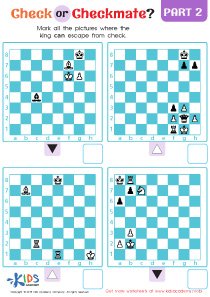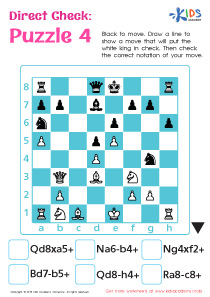Easy Subtraction Story Problems (#'s 1-5) Quizzes for Ages 3-5
2 results
2 filtered results
Clear all filters2 filtered results
-
From - To
Unleash the joy of learning math with our "Easy Subtraction Story Problems (#'s 1-5) for Ages 3-5"! Designed to captivate young minds, these interactive quizzes are the perfect blend of fun and education. Tailored specifically for children aged 3 to 5, our quizzes present subtraction problems through engaging stories, making math relatable and easy to understand. As kids embark on this delightful journey, they will enhance their problem-solving skills and receive instant feedback to encourage their progress. Dive into the world of numbers and watch your little ones master the basics of subtraction with ease and confidence!
In today's educational landscape, fostering a love for mathematics at an early age is crucial for children's cognitive development. It is not just about learning numbers but understanding the concepts and applying them in real-life situations. This is where our Easy Subtraction Story Problems (#'s 1-5) for Ages 3-5 come into play, offering a unique and engaging way for young learners to grasp the basics of subtraction through interactive quizzes.
Subtraction is a fundamental arithmetic operation that is essential for young learners to master. However, teaching this concept to children in the age group of 3-5 years can be challenging, as it requires them to not only comprehend the numbers but also understand the process of 'taking away'. This is why our Easy Subtraction Story Problems are designed to transform abstract concepts into tangible scenarios that resonate with the young minds of preschoolers.
Our Easy Subtraction Story Problems (#'s 1-5) for Ages 3-5 are carefully crafted to engage children in a way that is both fun and educational. By weaving subtraction problems into short, relatable stories, children can visualize the math problem, making it easier for them to understand and solve it. This method encourages active participation and deepens their comprehension of subtraction in a way that mere number manipulation cannot.
For instance, a story problem might describe a scenario where a child has five apples and eats two, prompting the learner to figure out how many apples are left. This approach not only teaches subtraction but also improves their listening and comprehension skills, as they must follow the narrative to solve the problem.
The interactive quizzes that accompany the Easy Subtraction Story Problems are an excellent tool for continuous assessment and reinforcement of the concepts learned. These quizzes provide immediate feedback, allowing children (and their parents or educators) to identify areas of strength and those needing further improvement. Such real-time feedback is invaluable in maintaining the child's interest and motivation in learning.
Another advantage of incorporating story problems and interactive quizzes into the learning process is the development of problem-solving skills. Children learn to apply logic and reasoning to arrive at the correct answer, a skill that is beneficial not only in mathematics but in everyday life.
Furthermore, our Easy Subtraction Story Problems are designed keeping in mind the cognitive and attention span of children aged 3-5. The stories are short, captivating, and presented in a visually appealing format to keep the young learners engaged. Additionally, the interactive element of the quizzes adds a layer of excitement to the learning process, making it more like a game than a traditional classroom exercise.
In conclusion, our Easy Subtraction Story Problems (#'s 1-5) for Ages 3-5 are not just about learning to subtract; they are about laying a strong foundation for mathematical thinking, problem-solving, and a lifelong love for learning. By integrating these interactive quizzes into their studies, children are provided with an enjoyable and effective way to develop their numerical abilities, setting them on the path to success in mathematics and beyond.













